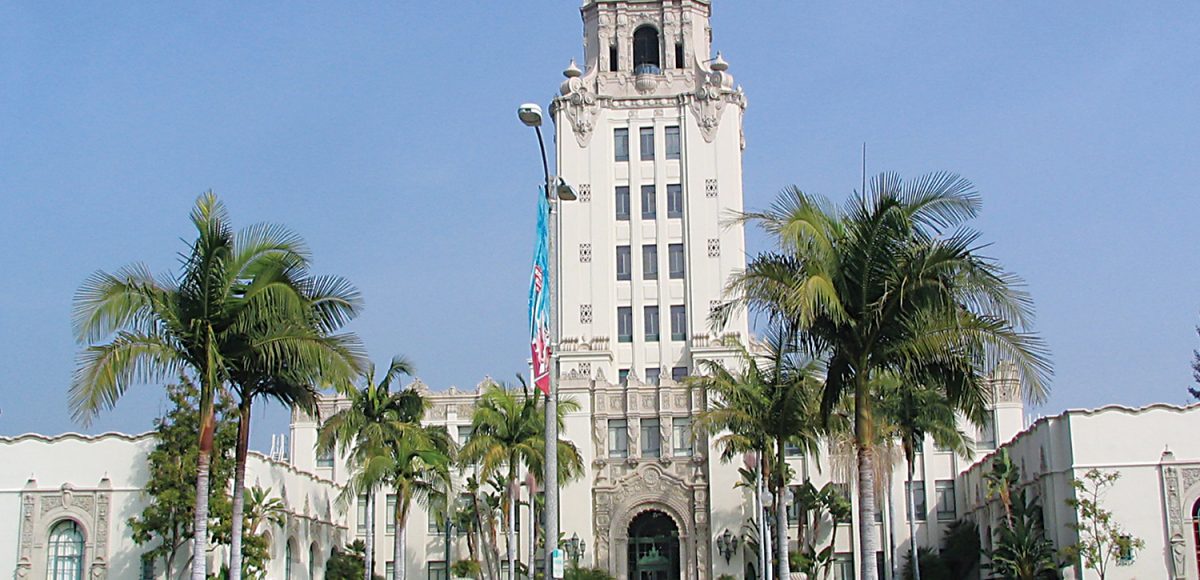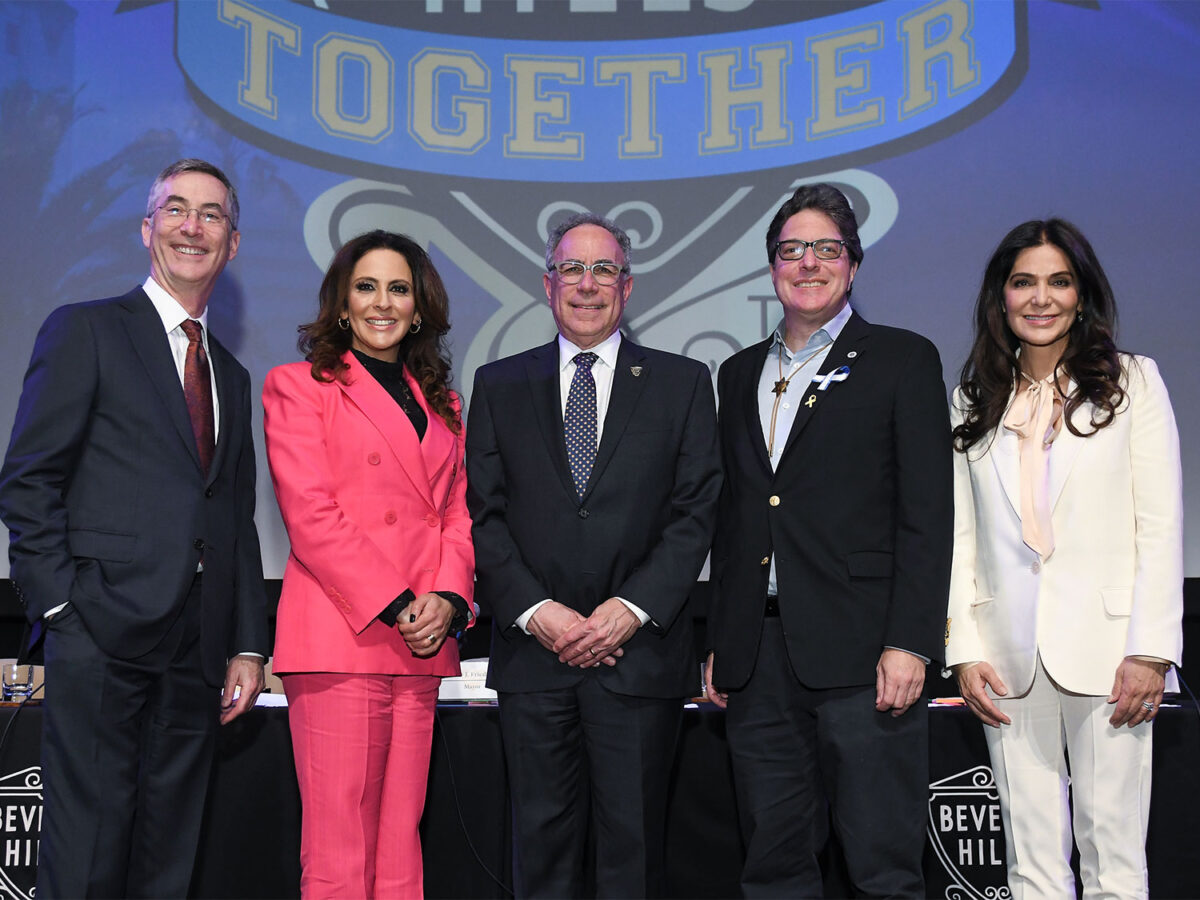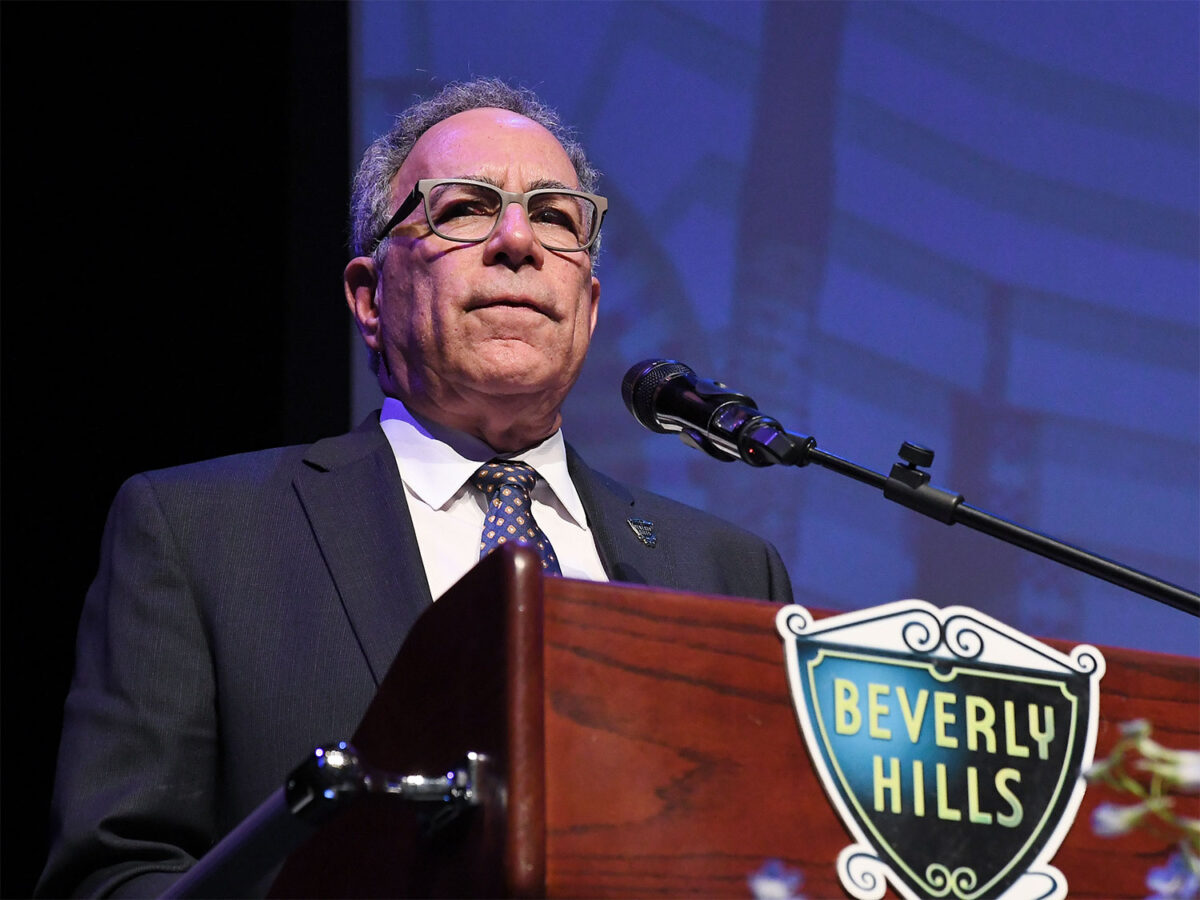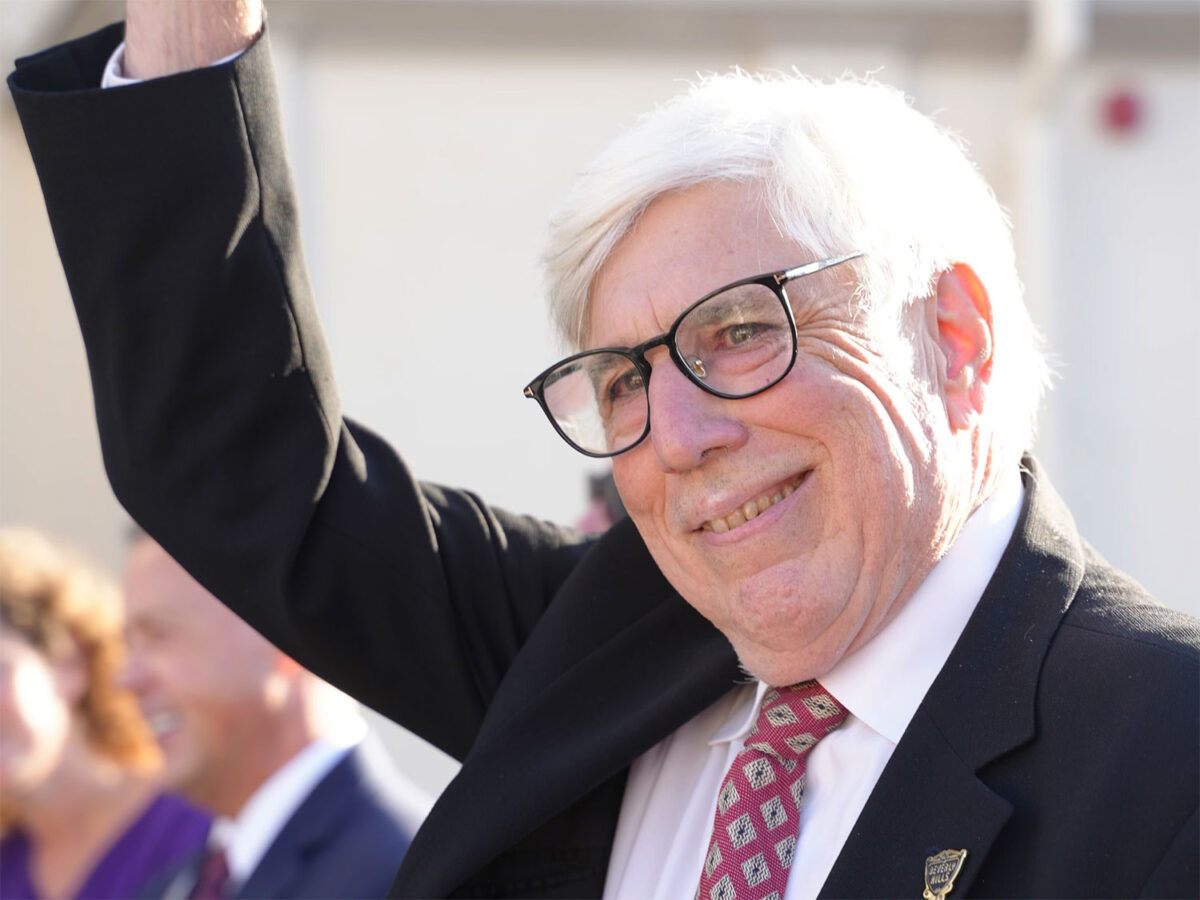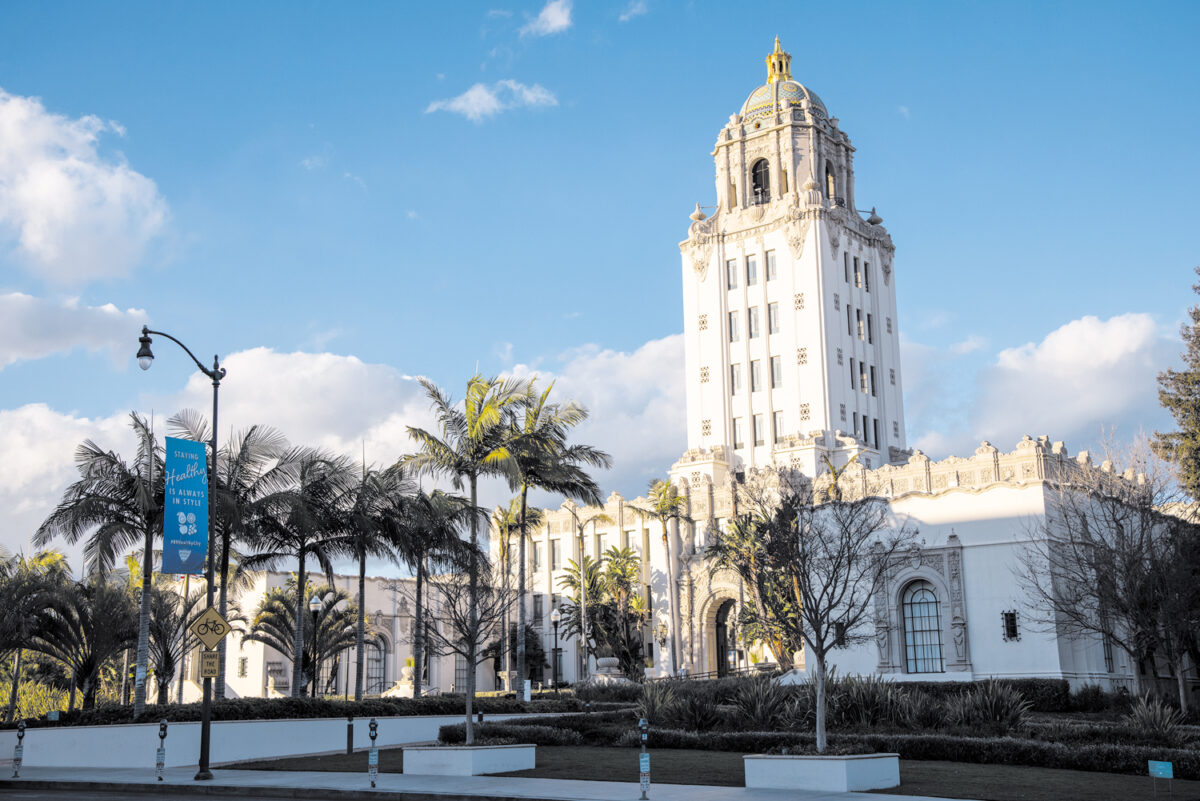The Beverly Hills City Council approved the first project in the city’s mixed-use overlay zone on Nov. 7, denying an appeal by a non-profit that has opposed similar developments across Los Angeles.
The Covina nonprofit, Supporters Alliance for Environmental Responsibility (SAFER), has claimed that the 105-unit mixed-use development at 55 N. La Cienega Blvd., the site of the former “Stinking Rose” restaurant, would have significant air quality and noise impacts and that the city had incorrectly exempted it from a California Environmental Quality Act review.
But during the Nov. 7 hearing, City Planner Masa Alkire rebuked SAFER’s findings, saying the air quality concerns were based off of an outdated research paper and that studies performed by an independent consultant showed construction noise would not exceed city standards.
“The appeal appears to be based on speculation as to what materials will be used in the project construction and is not based on the facts associated with the project,” Alkire said, regarding the air quality concerns.
After Alkire presented the staff report on SAFER’s concerns, the City Council grilled SAFER attorney Victoria Yundt from the law firm Lozeau Drury. Yundt deflected most questions about the details of SAFER’s findings, often deferring to the firm’s air quality and noise pollution “experts” who were not present at the meeting.
In response to questions from Council member John Mirisch about who SAFER represents and the organization’s ties to Beverly Hills, Yundt said, “they are members that work and live in the community.”
Mayor Dr. Julian Gold also asked about the organization’s ties to labor unions and recommended that SAFER and Lozeau Drury representatives ensure they are in compliance with the city’s political lobbying laws.
Abraham Assil, developer of the La Cienega project, did not comment on SAFER’s appeal but thanked the council for approving the project, a significant win in his effort to renovate the vacant property.
Of the proposed development’s 105 units, 11 are reserved for families with very low incomes, and the 18,986 square-foot ground floor is slated for commercial retail, restaurant or market uses, according to a staff report. The proposal also includes rooftop amenities like a pool and spa.
During a June 22 Planning Commission meeting, Assil said he envisioned a sophisticated, Eataly-style establishment on the ground floor. Although Commissioner Peter Ostroff expressed concerns about a ground floor market and balconies proposed for some of the residential units, the commission unanimously approved a density bonus permit and development plan review.
It was the first density bonus approved for a project in the mixed-use zone since it was created almost three years earlier.
But the project faced challenges soon after, with Lozeau Drury filing the appeal on July 5, claiming that building materials containing formaldehyde would have significant impacts on indoor air quality.
On Sept. 22, hours before the City Council was set to decide on the appeal, Lozeau Drury sent an email to the council raising additional concerns about noise pollution during construction.
Although the council harshly criticized Lozeau Drury for stymying proceedings with the 11th hour email, they agreed to delay the decision until Nov. 7 so they could consider all of the concerns.
There were no public comments during the Nov. 7 hearing, and although Assil initially expressed reservations about an indemnity clause in the resolution approving the project, he was assuaged after City Attorney Laurence Wiener said such clauses were a standard feature of development applications.
“Thank you everyone [on the council],” Assil said. “This is the longest project I’ve ever done, and I’ve done many projects, but I’m very proud to be part of this city.”
The project will now continue through the architectural review and building permit processes, though city staff did not schedule future hearings.
Representatives from Lozeau Drury did not respond to requests for comment.



